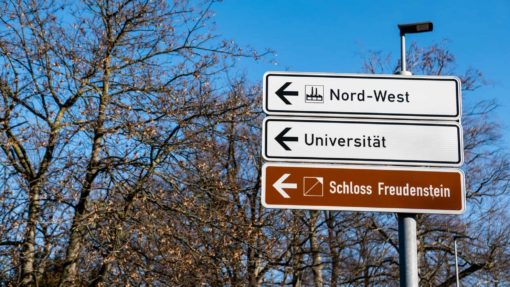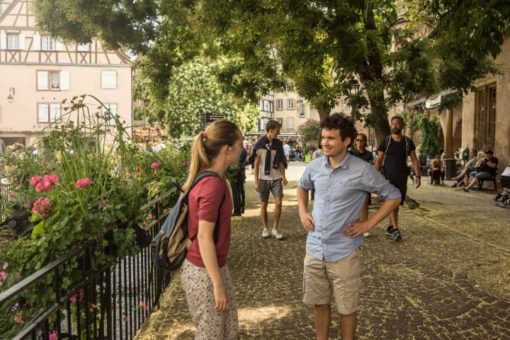Studying in Europe can offer you much more than a brilliant education and career.
Schengen universities would also give you the chance to speak a second language, meet people from all corners of the world, immerse yourself in different cultures, and build independence.
In Europe, you can find the best universities in the world.
How fun can it be to experience a brand new country, make lifelong friends, hone your language skills, and develop a career path at the same time?
The opportunity to study abroad in the Schengen Zone is likely to turn out to be a once in a lifetime opportunity.
Eventually, you will return to your country of residence and make your resume stand out.
Does it sound good?
If you’re feeling excited about studying abroad, the first step towards turning this dream into reality is applying for a Schengen Visa.
Table of contents:
- Student Schengen Visa: General Information
- Getting A Student Visa: Embassy Requirements & Application Process
1. Student Schengen Visa: General Information

Embassies and Consulates grant Visas to students willing to attend a study course in any of the Schengen Countries (if they are not from the European Union or European Economic Area and are eligible for a Schengen Visa).
Therefore, you can apply for a Student Visa if you plan on attending a study course at a University located in Europe.
You may think: “That’s great! Now I know what Visa type I need to study in Europe.”
Yes and no.
If you plan on studying in a Schengen State, you MUST apply for a Visa.
However, you should first ask yourself the following question: “How long do I need to stay in the Schengen Area?”
Here is why the answer to this question is critical for your application:
- If you need to stay for up to 90 days in the Schengen Area to attend a short course of study, you must apply for a type-C short-stay Schengen Visa.
- If you need to stay for more than 90 days in the Schengen Area to attend a course of study for an extended period (e.g., a full academic year), you must apply for a type-D National Visa.
If your study or training course lasts for a maximum of 3 months (90 days), this is the right guide for you, as we will be covering general information and Embassy requirements for a type-C short-stay Student Visa.
Otherwise, you should know that the application process for getting a type-D Student or Work National Visa is much more complex.
As a general rule, Embassies and Consulates do not have a standard requirements list for Student National Visas. They analyse each application on a case-by-case basis before approving a long-stay Visa.
Moreover, Embassies and Consulates issue long-stay Visas according to national laws and regulations, meaning that requirements for such Visas vary depending on each Member State’s law.
For further information about Schengen Visa types, please check out this link.
Important note: You can apply for a short-stay Student Schengen Visa whether you are currently a student in your country of residence or not.
Maybe you have already graduated and wish to attend a study or training course to improve your professional skills.
That’s totally up to you.
It does not matter what your employment background is. As long as you plan on travelling to Europe for studies, you are eligible for a Student Schengen Visa.
2. Getting A Student Visa: Embassy Requirements & Application Process

The mandatory Student Visa requirements vary by Embassy.
There is no standard requirements list valid for all Schengen Member States.
For this reason, we have included in the list below all the documents that Embassies may want you to submit, even though some of them are optional and not mandatory.
However, we always recommend our community members submit the optional documents to increase their Visa approval chances.
Below you will find the complete list of documents requested for a Student Schengen Visa:
| • Two Visa application forms fully completed and signed (in the application form, you must indicate “study” as your journey’s primary purpose). |
| • Two recent photos that meet the Schengen Visa photo requirements. |
| • Valid passport not older than ten years and with at least two blank pages. Your travel document must be valid for at least three more months beyond your departure from the Schengen Area |
| • Older passports with Schengen Visas on them (if applicable) |
| • Round-trip flight reservations of bookings |
| • Schengen Travel Insurance with a minimum of 30,000 euros coverage |
| • Proof of accommodation, such as: ◦ An accommodation sponsorship letter proving you will be staying at the house of your friends or family members Note: The Schengen University or School can also write a letter stating that they will be guaranteeing you a place in halls or catered accommodation. ◦ Rental agreement confirming that you have rented a room or apartment in a Schengen country |
| • Proof of financial means, such as: ◦ Your bank account statements for the last 3-6 months showing you have a specific amount of money available for each day you spend within the Schengen Zone (for more details, please check our financial means test) ◦ A sponsorship letter containing your sponsor’s contact details – In this case, you must also submit: → The bank statements of the last 3-6 months of your sponsor → A copy of the ID/passport of your sponsor → Documents showing your degree of kinship or relationship (e.g., if your parents are sponsoring your trip, you can submit your original birth certificate showing their full names) ◦ A combination of your last 3-6 months of bank account statements and a letter of sponsorship if someone will support your trip partially ◦ Proof that you get a scholarship (if applicable) – Please note that your scholarship must cover a minimum of 631€/month |
| • Cover letter addressed to the Visa officers that outlines your travel purpose and intentions to return to your country of residence |
| • Proof of paid Visa fee |
| • Civil status proof (e.g., a marriage certificate – if applicable) |
| • Utility bill as proof of address (only if the utility bill is under your name) |
| • Certified passport copy |
| • Certified birth certificate copy |
| • Letter of acceptance stating that a Schengen University, College, or School has accepted you as a student |
| • Proof of academic qualifications, such as your diplomas and academic records (if you are currently a student). You can also submit one of the following documents: attestation of the application for equivalence or decision/dispatch of equivalence. |
| • Student No Objection Letter (NOC) stating that your School or University has no objection towards you travelling to the Schengen Area (if you are currently a student) |
| • Proof of School Enrolment (or Student Status Letter) outlining that you are attending a course of study for a specific school or academic year (if you are currently a student) |
| • If you are a minor, you must submit: ◦ Original birth certificate ◦ Certified copies of the ID/passports of your parent(s) or legal tutor(s) ◦ A parental authorisation letter signed by your parent(s) or legal tutor(s) stating that they allow you to travel |
| • If you are employed, you must submit: ◦ Employment contract ◦ Leave permission from the employer ◦ Payslips for the last 3-6 months ◦ No Objection Certificate (NOC) Letter from Employer ◦ Certificate of Employment (COE) ◦ Personal Income Tax Return (ITR) |
| • If you are self-employed, you must submit: ◦ Business Registration Certificate ◦ Business license ◦ Business Income Certificates ◦ Company Bank Statements for the last 3-6 months ◦ Company Income Tax Return |
| • Copies of all documents |
| • Proof that you have paid for your study or training course in advance (if applicable) |
| • If you are not a citizen of the country where you are applying: a copy of your residence permit (if applicable) |
Now that you know the documents required for your Student Schengen Visa, you should also gain an overall understanding of the Visa application process.
For detailed information about the steps you must take to submit your application, please visit this link.

However, as a general rule, you should consider the following key steps for a successful application process:
- Find out where you need to apply
In most cases, you need to submit your application to the Embassy or Consulate of the Member State where you plan on attending a course of study.
- Find out when you need to apply
The Schengen Visa scheme allow you to submit your application:
- Not more than six months before the date you plan to travel to the Schengen Area (the earliest date).
- Not less than 15 working days before the date you plan to travel to the Schengen Area (the latest date).
- Book an appointment
We strongly recommend you book your Embassy appointment well in advance. Most of the time, you can do it through the Embassy website.
If you don’t know how to book your Visa appointment, please check out this guide.
- Collect your documents
We suggest that you start reading our guides for each Embassy required document.
Reading our guides will help you have a clear understanding of the details your documents must include.
- Hold the Visa interview
During your interview, the Visa officers will ask you a set of questions to ensure you intend to return to your home country and your travel purpose is genuine.
You will also have to pay the Visa fee during your appointment and provide your biometric data.
- Wait for an answer concerning your application
Typically, Schengen Embassies and Consulates take up to 15 days to process Visa applications.
After approximately 15 working days, you will receive a letter from the Embassy.
In the unfortunate event that your Visa gets rejected, you can appeal the Embassy’s decision.
If your Visa gets approved, smile! You only have to return to the Mission to get the Visa sticker affixed to your passport and pack your suitcase.
A brand new, exciting study experience is waiting for you!

If you have any questions concerning the Student Visa application process, do not hesitate to contact us.
Please note that the Schengen Visa requirements depend on your personal situation as well. If you are still not clear concerning the documents that you must submit, it would be a pleasure for us to provide you with a FREE Schengen Visa consultation report.
We understand the value of studying abroad, and we would be more than happy to help you apply for a Schengen Visa and live this experience!
